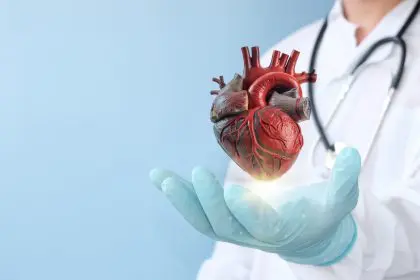In the quiet hours of the night, your heart beats steadily onward, performing its ceaseless symphony of life. Yet beneath this rhythmic performance, subtle signs of distress might be emerging – whispers of warning that too many of us choose to ignore. The story of heart disease often begins not with dramatic chest pain, but with subtle hints that something isn’t quite right.
The midnight messenger
When sleep becomes an elusive companion, your heart might be sending its first distress signal. Sleep apnea, that notorious disruptor of peaceful nights, shares an intimate connection with heart health. The repeated oxygen deprivation that accompanies each interrupted breath places an invisible strain on your cardiac system, gradually wearing down its resilience. This nocturnal warning sign often manifests through morning headaches, daytime fatigue, and the telltale chorus of snoring that partners frequently report.
The breathless betrayal
Perhaps you’ve noticed that familiar activities suddenly leave you winded – the stairs you’ve climbed countless times now demand a pause halfway up, or the walk to your favorite café requires an unexpected rest. This shortness of breath, especially during routine activities, serves as your heart’s way of announcing its struggle to keep up with oxygen demands. The inefficient pumping of blood through your system manifests in these moments of breathlessness, a subtle yet significant indicator that your heart needs attention.
The swollen story
Your body possesses an eloquent way of expressing cardiac distress through fluid retention. When ankles, feet, and legs begin to swell, particularly after long periods of sitting or standing, it might indicate your heart’s diminishing ability to maintain proper circulation. This fluid accumulation, known medically as edema, often appears first in the lower extremities, creating a visible marker of potential trouble.
The exhaustion equation
Fatigue that defies explanation – the kind that persists despite adequate rest – might be more than simple exhaustion. When you struggle to maintain efficient blood flow, every organ system must work harder to compensate. This additional effort manifests as a bone-deep weariness that sleep alone cannot remedy. The connection between unexplained fatigue often goes unrecognized until other symptoms emerge.
The rhythm rebellion
Irregular heartbeats, those unsettling moments when you seem to skip, race, or flutter, deserve careful attention. While occasional palpitations might be benign, persistent irregularities could signal underlying cardiac issues. These rhythm disruptions, particularly when accompanied by dizziness or lightheadedness, warrant professional evaluation rather than casual dismissal.
The digestive deception
Sometimes heart trouble masquerades as digestive distress. The nausea, indigestion, and abdominal discomfort that might seem like mere gastrointestinal issues could actually signal cardiac distress. This deceptive presentation often leads people, particularly women, to overlook serious problems, attributing their symptoms to less serious conditions.
The emotional enigma
Anxiety and depression, while commonly viewed as purely psychological conditions, might actually signal cardiovascular stress. The intricate connection between heart health and emotional well-being works both ways – poor cardiovascular function can manifest as anxiety, while chronic stress and depression can contribute to heart problems.
The path to preservation
Understanding these warning signs represents only half the battle. The journey requires active intervention through lifestyle modifications and medical support. Consider these essential strategies for cardiac preservation:
Movement becomes medicine through regular physical activity, which strengthens the muscle and improves circulation. The key lies not in extreme exercise but in consistent, moderate activity that elevates your heart rate and challenges your cardiovascular system appropriately.
Nutritional nurturing involves embracing a diet rich in whole foods, lean proteins, and heart-healthy fats. The Mediterranean diet, with its emphasis on olive oil, fish, vegetables, and whole grains, provides a proven template for cardiovascular health.
Stress management emerges as a crucial component of heart health preservation. Techniques such as meditation, deep breathing exercises, and regular relaxation practices help reduce the burden that chronic stress places on your cardiovascular system.
The heart professional partnership
While self-awareness and lifestyle modifications play crucial roles in heart health, professional medical guidance remains essential. Regular check-ups, particularly when warning signs emerge, provide necessary monitoring and intervention opportunities.
The technology advantage
Modern medical technology offers increasingly sophisticated tools for heart health monitoring. From smartphone apps that track rhythm to wearable devices that monitor blood pressure, these innovations provide valuable data for both patients and healthcare providers.
The prevention precedent
Prevention, rather than intervention, should guide our approach to heart health. By recognizing and responding to early warning signs, we can often prevent serious cardiac events before they occur. This proactive stance requires both vigilance and commitment to healthy lifestyle choices.
The story unfolds differently for each individual, yet these warning signs remain remarkably consistent across populations. By understanding and heeding these signals, we can often intervene before serious problems develop. The tireless organ that beats roughly 100,000 times each day, deserves our attention and care. Through awareness, action, and appropriate medical support, we can help ensure it continues its vital work efficiently and effectively for years to come.













